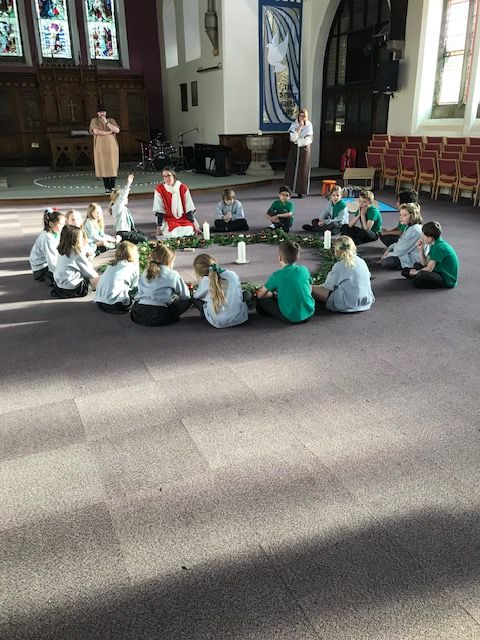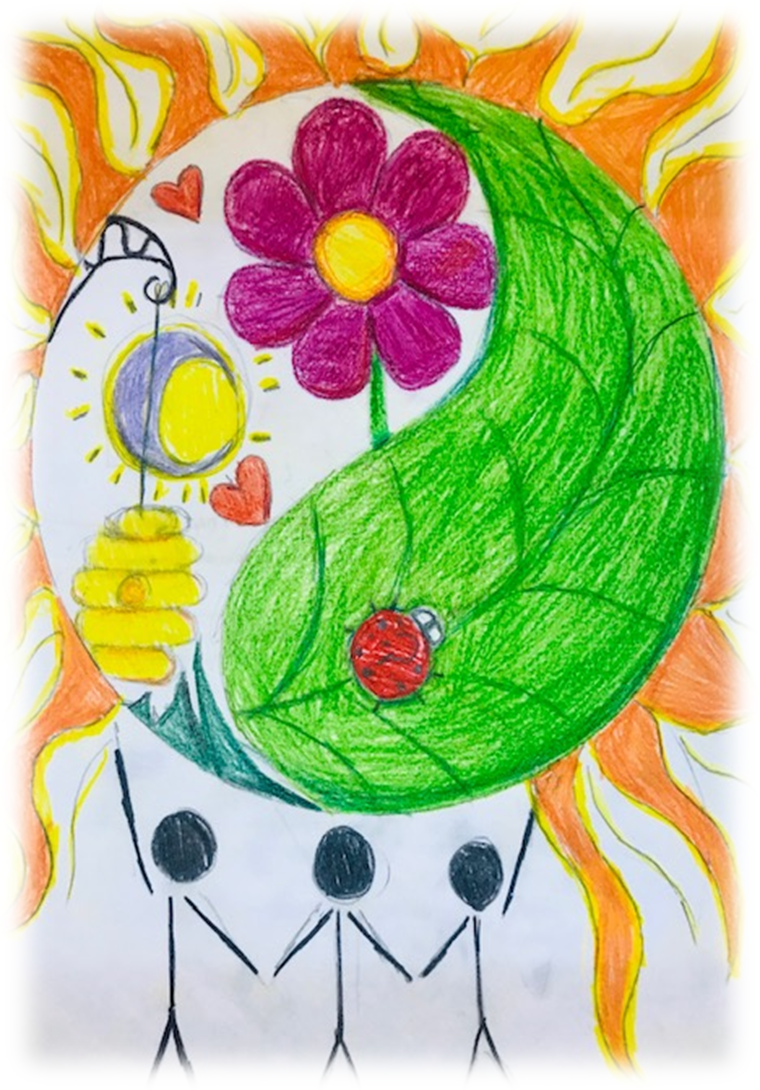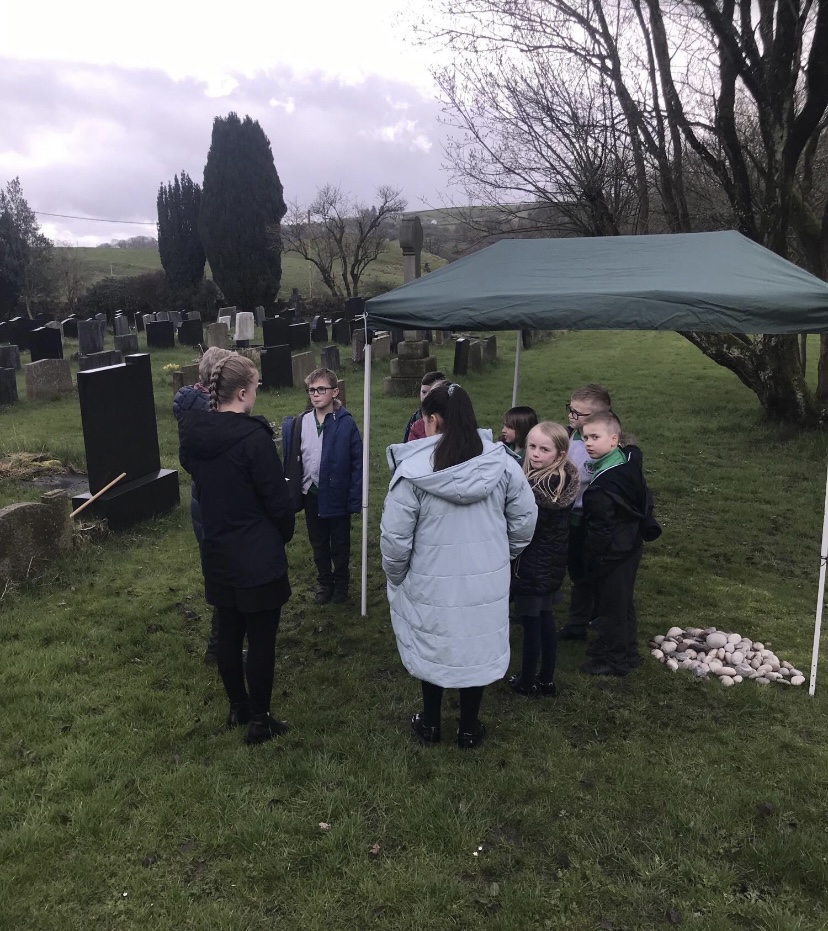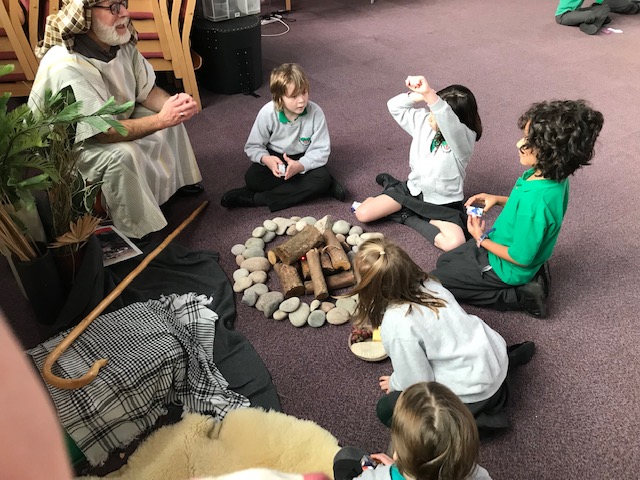Religious Education & Spirituality
Religious Education:
At St Mary’s our families can expect a religious education curriculum that is rich and varied, enabling learners to acquire a thorough knowledge and understanding of the Christian faith.
We provide a wide range of opportunities for learners to understand and to make links between the beliefs, practices and value systems of the range of faiths and world views studied. We use an enquiry approach and encourage our children to ask ‘big questions’ and dive deeper into their understanding of their own faith and a respect of others.
Our six core Christian Values and twelve ‘branching values’ underpin our spiritual, moral, social and cultural development and are intrinsic to the whole curriculum and have significant impact on learners.
Spirituality in Religious Education
Spiritual development is nurtured in Religious Education through:
- Reflecting on people, places, things, books, actions and ideas held by religious believers to be holy
- Asking 'Big Questions' about meaning and purpose
- Exploring ideas of the divine / questions of God
- Researching different forms of worship
- Using music, art and drama to express beliefs
- Discovering a variety of beliefs, celebrations and rituals
- Suggesting ways religion can create a sense of belonging and commitment to groups and institutions
- Appreciating the idea of mystery and questions with no clear answers
Useful websites:
http://www.primaryhomeworkhelp.co.uk/
https://www.bbc.co.uk/bitesize/topics/ztkxpv4/articles/zvfnkmn
https://www.uri.org/kids/world-religions




Spirituality
What is Spirituality?
It is very difficult to put into words what ‘spirituality’ actually is because it is a very personal experience. It differs from person to person, and often spirituality changes within people during their lifetime. Spirituality is not the same as having a religion or faith; a person can be spiritual without having a particular faith. At St Mary’s we have defined spirituality as:
'A feeling we have inside ourselves, like an inner peace or the feeling of wonder. We ask big questions and have a care for nature and living things.'
The image was designed by Class 4 and drawn by a Y6 pupil.
The language we use to define spirituality is not child-friendly, so when talking to children about it, we will refer to:
- A sense of awe and wonder
- Care for nature and living things
- Wanting to love and to be loved by people
Awe and Wonder
Children are born inquisitive, and it is our duty to nurture this natural curiosity and guide them towards looking at the world and noticing, with awe and wonder, the natural and man-made delights all around us. We want to encourage them to ask ‘big questions’ about life, religion, nature, science and any other area of fascination.
Caring for Nature and Living Things
We provide many opportunities for children to learn about nature, we cherish the village, and it's stunning location. As a Church School, this is especially important. Through our curriculum and outdoor learning children learn about the world and how they can care for living things.
Love
We are a very caring school and pride ourselves on our ethos of the 'St Mary's' family. Through our Christian Values, we teach children to care for friends, family and the community. Indeed, our curriculum includes learning about those we love and who love us.
Children’s spiritual development is fostered through all aspects of our provision. It is about the relationships and the values that we consider to be important, as well as the development of knowledge, concepts, skills and attitudes. We give children opportunities to:
- Express personal beliefs and compare views with others, sharing feelings and opinions through discussions and stories.
- Begin to develop their own system of beliefs which may or may not include religious beliefs.
- Experience a love of learning through rewarding their enthusiasm and by encouraging exploratory play and learning.
- Reflect upon the world around them and show a sense of awe and wonder towards aspects of the natural world or human achievement.
- Reflect on the situations of others through role play, stories.
- Experience a range of stories, music, art, drama and dance
